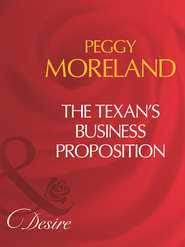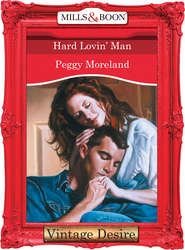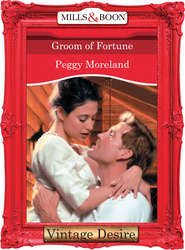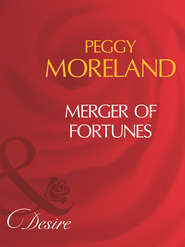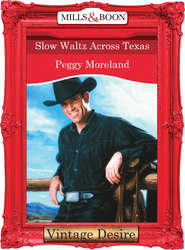По всем вопросам обращайтесь на: info@litportal.ru
(©) 2003-2025.
✖
The Texan's Convenient Marriage
Автор
Год написания книги
2019
Настройки чтения
Размер шрифта
Высота строк
Поля
“Yeah,” Pops admitted quietly. “It’s the soldier who fears nothing that gets himself killed. If you use fear to your advantage, it’ll keep you alert, on guard, prepared. Give in to it and it’ll make you helpless, weak.”
Romeo considered that for a moment, but found little comfort in Pop’s advice. He’d always considered himself brave, even cocky. Now he wondered if he had a bright-yellow stripe running down his back.
“Is being afraid the same as being a coward?” he asked hesitantly.
“No. A coward runs and hides.”
“Some of the guys think Preacher’s a coward.”
“Well, they’re wrong. Preacher just can’t bear the thought of taking a human life. It’s his beliefs he struggles with, not cowardice.”
Romeo considered that a moment, then shook his head sadly. “Hell, it doesn’t matter if you’re a hero or a coward. We all die just the same.”
Pop pulled a package of gum from his pocket. “Don’t think about dying,” he warned, and offered a piece to Romeo. He unwrapped one for himself and folded the strip of gum in two, before popping it into his mouth. “Think about living, about what you’re going to do when you get home.”
Romeo gulped, thinking about what he’d left behind, what would be waiting for him when he returned. “Have I ever told you why I joined the service?”
“Can’t say as you have.”
“I got a girl pregnant.”
He felt Pop’s gaze and, for once, was grateful for the darkness so that Pop couldn’t see his face, his shame. “She was putting pressure on me to marry her. I figured the army was as good a way to get out of it, as any.”
If Pop had an opinion, he kept it to himself, which Romeo appreciated. He wasn’t looking for absolution…or a lecture. What he wanted was a sounding board, someone who would listen.
“It was wrong,” he admitted with regret. “Running away, I mean. Even if I didn’t want to marry her, I should’ve at least agreed to share responsibility for the kid. It’s mine, a part of me. I shouldn’t have left her to deal with it alone.” He glanced over at Pops. “Do you think it’s too late?”
Pop frowned in confusion. “For what?”
“To provide for the kid. I was thinking maybe I could send her some money.”
“I’m sure she’d appreciate it,” Pop replied.
“Yeah,” Romeo said, warming to the idea. “And when I get home and get a real job, I could send her a set amount every month. Kinda like the child support my dad had to pay my mom after they divorced.”
“Sounds fair,” Pops agreed. “A man should take care of what’s his.”
Romeo frowned, as a new thought rose. “But what happens if I don’t make it home?” He glanced over at Pops. “Who’ll take care of my kid then?”
Pops clasped Romeo’s shoulder, gave it a squeeze. “Don’t talk like that. You’re going to make it home. We all are.”
Though Romeo appreciated the reassurance, he knew Pops was blowing smoke. There were no guarantees. Not for any of them. And if he did get killed, what would happen to the baby he’d fathered? He didn’t have anything of value to leave behind. No savings, no property. Hell, he didn’t even own a car. He’d sold his old heap to his cousin, before he’d left for ’Nam.
“Pops?”
“Yeah?”
“Remember the deed that rancher tore up and gave to us the day before we shipped out?”
“Yeah. What about it?”
“The old man said he was going to give us his ranch when we got home. My portion of the deed is in my footlocker back at camp. If something happens to me, would you see that my kid gets it?”
“Nothing’s going to happen to you,” Pop maintained stubbornly.
“But if something does, promise me you’ll send it to Mary Claire Richards. Tell her it’s for the baby.”
There was a long pause of silence, before Pop said quietly, “Consider it done.”
One
Addy pressed the heel of her hand against the ache building between her eyes. Another five minutes on the phone with her mother and it would surpass the one that had throbbed low in her back all day.
Drawing in a deep breath, she searched for patience.
“I know you don’t like to talk about my father,” she began, choosing her words carefully. “But this is important. A lady called. Stephanie Parker. She said her father served with mine in Vietnam.”
“So what if he did?” her mother snapped. “Thousands of American soldiers went to Vietnam.”
Ignoring her mother’s bitterness, Addy forged on, determined to get through this conversation without screaming. “Stephanie told me that her father sent her mother a letter from Vietnam with a torn piece of paper inside. She thinks Tony might have had a similar piece and sent it to you.”
“The only thing Antonio Rocci ever gave me was you and that was an accident.”
Addy didn’t flinch at the jab at her illegitimacy. She’d had the circumstances surrounding her birth thrown in her face so often over the years that hearing it no longer had the power to sting.
“This paper may be valuable,” she persisted. “Do you remember Tony sending you anything like that?”
“That was over thirty years ago! How am I supposed to remember something that happened that long ago? I don’t even remember what was in yesterday’s mail.”
“A torn piece of paper, Mom. That’s odd enough that you should remember.”
“If you called to talk about him, I’m hanging up. I’m missing my shows.”
Before Addy could say anything more, the dial tone buzzed in her ear.
“The baby and I are doing fine, but thanks for asking.”
Scowling, she slammed down the phone, furious with herself for letting her mother’s lack of concern get to her. Mary Claire Richards-Smith-Carlton-Sullivan was a neurotic, self-centered woman who raced from one bad marriage to the next, fueled by a bitterness she’d clung to for more than thirty years and oblivious to anyone else’s needs, including her daughter’s.
With a sigh Addy swept a stray lock of hair from her face and told herself it didn’t matter. She’d survived thirty-three years of her mother’s disregard. Why should she expect her to show any concern now?
She stooped to untie her shoelaces but froze when she caught a glimpse of her reflection on the patio door. Straightening slowly, she stared, barely recognizing the woman who stared back. Her stomach looked as if she’d swallowed a soccer ball, her feet and ankles so swollen they looked like an elephant’s, and her long, black hair—which she usually considered her best feature—was wadded up in a frizzy knot on top of her head. Add to that lovely image nurses’ scrubs in a putrid shade of green and a well-worn pair of Reeboks and she was almost glad Ty wasn’t around to see her now.
Grimacing, she reached to untie her shoelaces again. “As if I’d let him past the front door,” she muttered under her breath. Ty Bodean was a lying snake and she was better off without him, even if it did mean she’d be raising her baby alone.
She caught her lower lip between her teeth as she eased the shoe off her swollen foot, thinking what all that meant, what lay ahead of her. Money was going to be a problem. Eighteen months ago, she’d bought the house, which had depleted her savings and shackled her to a mortgage payment that already stretched her monthly budget to the limit. At the time she’d made the purchase, it had seemed a wise investment. She’d always wanted to have her own home, and the previous owner had offered it to her at a ridiculously low price. Of course, when she’d agreed to buy the property, she hadn’t been pregnant and had no plans of becoming pregnant in the near future. An unforgettable—albeit brief—affair with Ty Bodean had changed all that.
The second problem—which was tied directly to the first—was child care. She hated the thought of her baby being raised by strangers, but as the major and only breadwinner in the family, there was no way she could quit her job and stay at home with her baby.






